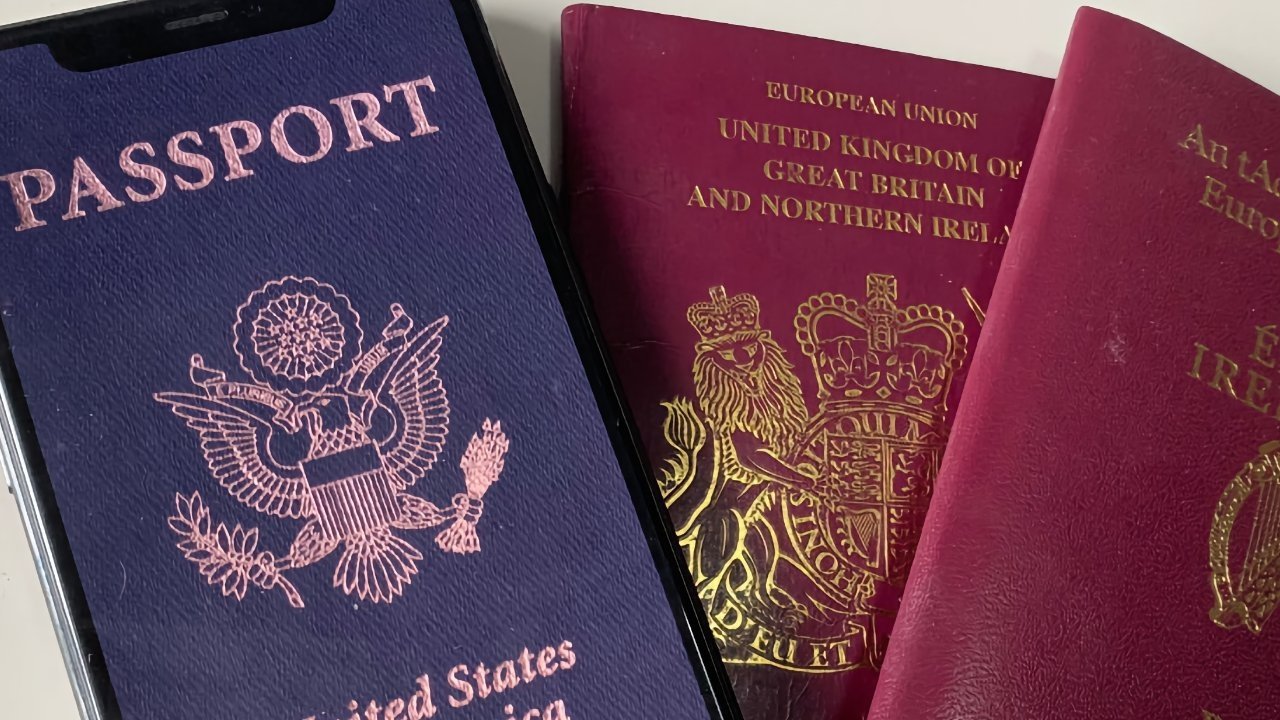The European Union is working on a new standard of digital identification to give citizens of all 27 countries access to public and private services under a single online ID.
The European Union-wide app would be accessed via biometric scans, such as retina, facial recognition, or fingerprint scans. It would allow users to securely store payment information, such as bank cards and credit cards, and official documents like passports and drivers' licenses.
According to the Financial Times, the use of the wallet won't be mandated at the time of introduction. Still, those who choose to use it would benefit from the added layers of convenience and security.
In order to avoid any cross-transfer of sensitive data, the EU officials will enforce a structural separation designed to prevent companies from accessing user data. This would prevent companies from being able to utilize a user's data for marketing purposes.
Currently, officials are meeting to discuss guidelines and standards for the rollout of the digital wallet, which they hope to have fully functional in roughly a year.
As of now, only 19 countries have begun roll-outs for digital IDs, and not all IDs are compatible with each other. Countries involved will need to agree on how to implement the system — and the lack of agreement is what scuttled the previous "standard."
Apple also has been planning ways to replace passports, driver's licenses, and other physical forms of identification. Patents have shown that Apple has been looking for ways to provide verified claims of user identity.
Apple has suggested there could be multiple ways of presenting an ID on request. For example: in the future, a user may be able to show a driver's license on the screen of their iPhone while their phone is in a locked state. Patents have also shown plans for potential RFID, NFC, Bluetooth, or Wi-Fi Aware methods for transmitting identity-verifying information.
Follow all the details of WWDC 2021 with the comprehensive AppleInsider coverage of the whole week-long event from June 7 through June 11, including details of all the new launches and updates.
Stay on top of all Apple news right from your HomePod. Say, "Hey, Siri, play AppleInsider," and you'll get latest AppleInsider Podcast. Or ask your HomePod mini for "AppleInsider Daily" instead and you'll hear a fast update direct from our news team. And, if you're interested in Apple-centric home automation, say "Hey, Siri, play HomeKit Insider," and you'll be listening to our newest specialized podcast in moments.
 Amber Neely
Amber Neely







-m.jpg)






 Christine McKee
Christine McKee
 Charles Martin
Charles Martin
 Mike Wuerthele
Mike Wuerthele
 Marko Zivkovic
Marko Zivkovic
 Malcolm Owen
Malcolm Owen


 William Gallagher
William Gallagher

-m.jpg)






23 Comments
LoL
The EU has become a bunch of lifetime bureaucrats trying to legislate and birth
technology
That is not how it works
We already have photos and signatures used in passports, which are a form of biometrics. But I'm worried about other biometrics being used for passports. Retinal scans might not be so bad because nobody can scan your retina without your permission. But fingerprints are another matter. I wouldn't want people I do business with to see my fingerprint. I (physically) leave my actual fingerprint behind wherever I (physically) go, which is very different from a retinal scan, since I do not leave a copy of my retina lying around when I walk through a building. Would EU citizens get to choose which biometric they can put into their digital ID? And how many nations would have access to the biometric database which the EU would set up? This could be a privacy nightmare.
I'm not an opponent of digital IDs. I think they are great. I have built more than one digital ID computer system for big clients. But the policy is important to understand. A digital ID policy statement tends to be about 100 pages long (and it's harder to write when it requires international agreements.) Has the EU even drafted their policy yet, or are they just winging it? The link that AppleInsider provided is not accessible because it's behind a paywall.
I guess the real issue here is if ordinary citizens of these 27 countries want their identity information controlled by Brussels instead of more directly accountable politicians and bureaucrats.
I would not. And I doubt the citizens in those countries will get any say at all on the matter.
They aren’t “birthing” anything new here, they are just building out a universal tracking system of its member states’ citizens.
but yes, in the case mentioned it totally makes sense for the EU taxpayer to fund a processor. Not. It isn’t as though there wasn't already a myriad of processors out there, but hey let’s do our own using Other Peoples’ Money. And do a cosy deal with our corporate mates so the Eurocrats can get a sweet job on early retirement, and everyone gets rich except the proles that actually paid for it in the first place. The only difference between 1930s Italy and the close coupling of government and corporate in the EU is a kinder face and an absence of snazzy uniforms.
The end result will still be a boot stamping on a human face, forever.
I wonder if the person interviewed and the journalist both laughed after that was said. A smug, insider laugh.
Bwwahgahhahhha! Oh my aching sides. The only way to stop this would be to not allow corporations any access in the first place. But of course, that isn’t what they want.